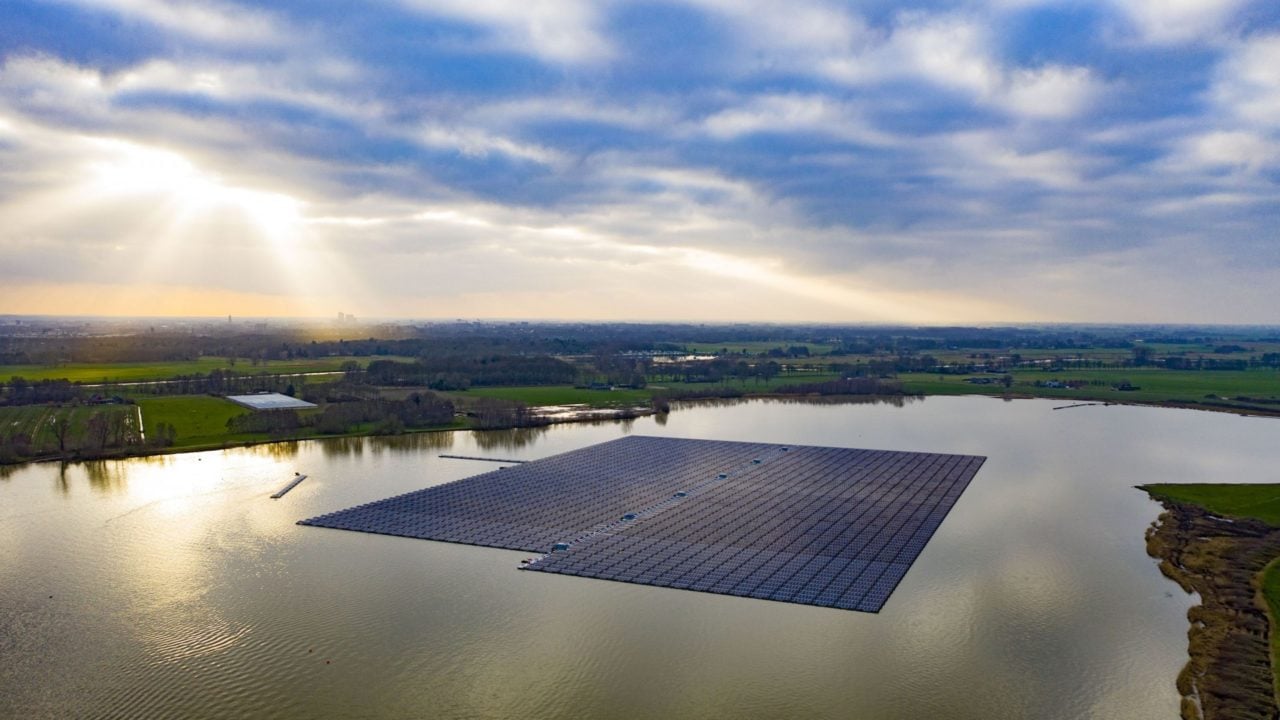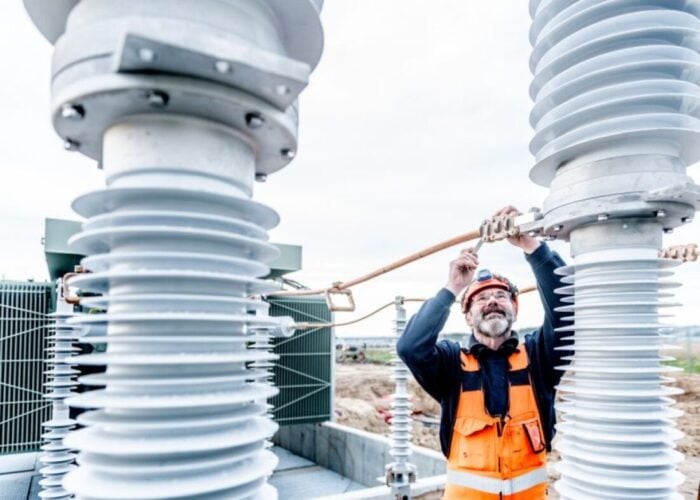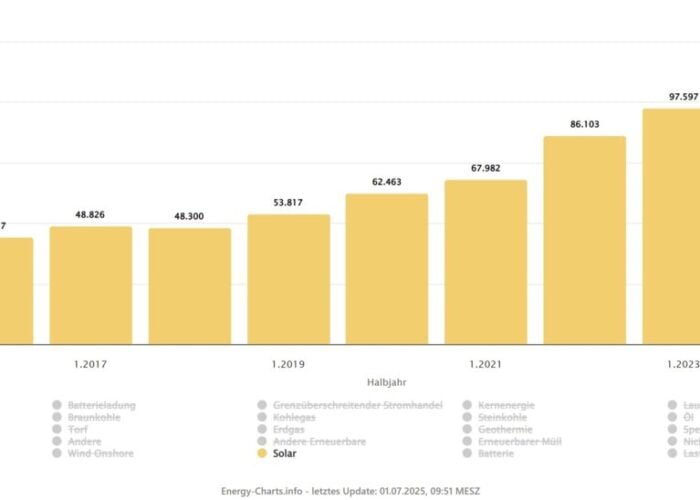
BayWa r.e. announced Tuesday that it has started construction of a 27.4MWp floating solar project on a sandpit lake in Zwolle, the Netherlands.
The German renewables firm claims that the Bomhofsplas solar farm, which it intends to complete within eight weeks, will be the largest floating PV (FPV) installation outside of China.
Unlock unlimited access for 12 whole months of distinctive global analysis
Photovoltaics International is now included.
- Regular insight and analysis of the industry’s biggest developments
- In-depth interviews with the industry’s leading figures
- Unlimited digital access to the PV Tech Power journal catalogue
- Unlimited digital access to the Photovoltaics International journal catalogue
- Access to more than 1,000 technical papers
- Discounts on Solar Media’s portfolio of events, in-person and virtual
It will comprise 73,000 PV modules, 13 floating transformers and 192 inverter boats.
Ongoing construction is said by BayWa r.e. to be “almost completely carbon-free,” with electric vehicles, tools and boats charged by the farm’s existing capacity and an onsite 600kW battery.
Benedikt Ortmann, BayWa r.e.’s global director of solar projects, said that 8MW of the project was already built over two weeks, peaking at 1MW a day.
“Our ability to deliver floating solar farms in such a short space of time is an exciting new opportunity for Europe and its bid to be carbon-free by 2050,” he said in a statement.
The “bespoke” floating solar system – designed in partnership with mounting structure specialist Zimmermann PV-Stahlbau GmbH – would be appropriate for disused quarries, mineral extraction pits and reservoirs, according to Ortmann.
BayWa r.e. wants to build 100MW of FPV in Europe in 2020, after turning on three FPV projects in the Netherlands over the last 14 months.
Its existing portfolio comprises the 14.5MWp Sekdoorn project, the 8.4MWp Tynaarlo project, as well the 2.1MW Weperpolder project.
Manmade water bodies at opencast mines in BayWa r.e.'s native Germany hold alone a potential for 65GWp of FPV, according to research commissioned by the firm and carried out by Frauhofer ISE researchers.
Floating solar, which is currently 10-15% more expensive than ground-mount projects, is an attractive proposition in areas where land is contested or scarce.







